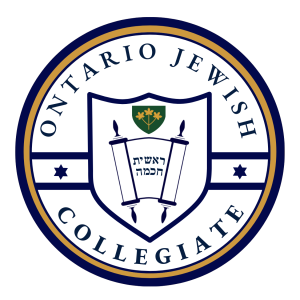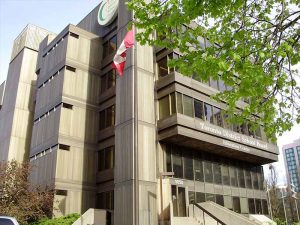 Creating legal provisions that allow the torture of terror suspects in Israel is a “slippery slope,” said Yuval Shany, the Hersch Lauterpacht chair in international law at the law faculty of the Hebrew University of Jerusalem.
Creating legal provisions that allow the torture of terror suspects in Israel is a “slippery slope,” said Yuval Shany, the Hersch Lauterpacht chair in international law at the law faculty of the Hebrew University of Jerusalem.
Yuval Shany
Shany was one of five Hebrew University professors to speak at the Adath Israel Congregation last week for the Best of Hebrew U, an event organized by the Toronto chapter of Canadian Friends of the Hebrew University (CFHU) as a way to connect Torontonians to the academic work being done at the university.
Shany, the event’s keynote speaker, discussed the complexities of fighting a war on terror while maintaining human rights in a democratic society.
“We need human rights in part because we don’t trust the majority to adequately protect the rights of the minority,” he said. “Perhaps nowhere is the challenge to human rights more apparent than in the war on terror.”
Israel “provides the perfect storm” in terms of the balance between terrorism and human rights, Shany said.
“Israel doesn’t have a constitution. We do not have a charter [of human rights and freedoms],” he said. “Israel, on the one hand, has relatively weak instruments to protect human rights. On the other hand, it’s facing vicious [terrorism].”
Dealing with terrorists in Israel and abroad is a unique challenge, Shany said, explaining that applying the basics of criminal law becomes complicated “when you have people who are willing to blow themselves up. [Courts] find themselves in unchartered [waters]. They have to invent new measures,” he said.
This occurred in the late 1980s when Israel adopted a measure that allowed soldiers to apply “physical pressure” on terror suspects in exceptional cases. The rule was struck down in 1999 by the Supreme Court.
“The court was getting complaints… that moderate physical pressure wasn’t that moderate,” Shany said. “[The court] came to the conclusion that when you allow an exception, the exception becomes the norm.”
He added that the court addressed the issue “in a smart way” by using the general defence of necessity under criminal law as a loophole. This means that, while torture is unlawful, those tried for the use of torture can use the defence of necessity.
“Under the new rule… the interrogator has to put their career and liberty on the line… The problem is this does not work,” he said. “Not in a single case was an interrogator prosecuted. In the long run, the court was right but the policy was not carried through.”
For event co-chair Paula Dodick, the Best of Hebrew U is a way for Torontonians to explore diverse topics through a different perspective.
“The range of topics… appeals to a variety of age groups and members of the community,” Dodick said. “It’s bringing what the university does [and] its best researchers to Canada.”
Miriam Pilc-Levine, the national director of communications and outreach for the CFHU, agrees.
“It’s our way of bringing the Hebrew University of Jerusalem to Canada. People don’t always have an opportunity to visit Israel,” she said, adding that the event used to be annual or semi-annual, but hasn’t been run for around three years.
“We wanted to regroup,” she said.
Other professors at the event included Ehud Cohen, who discussed the biology of aging, Howard Deitcher, who lectured on children and theological issues, Maren Niehoff, who talked about the Jewish Diaspora 2,000 years ago, and Aner Preminger, who analyzed two Israeli films.
For Preminger, a filmmaker and adjunct professor in the department of communications at Hebrew U, events like the Best of Hebrew U build important international relationships.
“I think… the relationship between Israel and the Jewish Diaspora are important for both. We in Israel need the support of Jews all over the world, and Jews all over the world need us. But it has to be a live relationship,” he said. “Events [like this] are feeding these relationships.”






